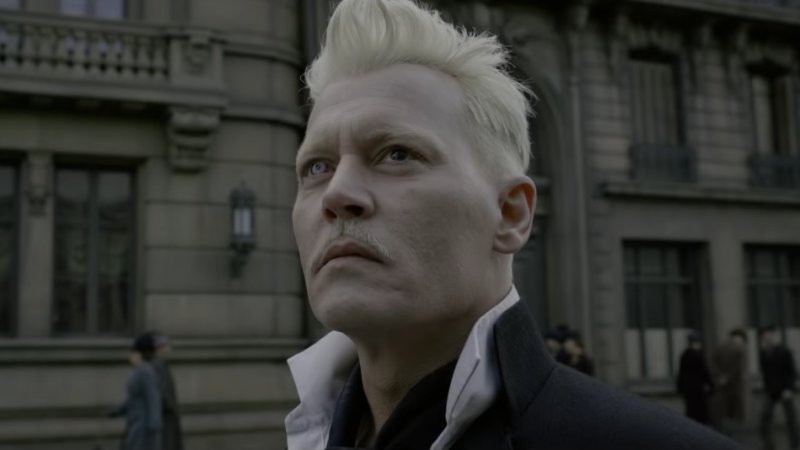With powerful hardware working together with an industry-leading camera system and intuitive AI experiences, everyday tasks have never been easier and faster
Review: Fantastic Beasts and the (cinematic) crimes of Grindelwald

As a huge Potterhead who is well versed in everything Harry Potter, I was quite excited at the prospect of new material from J.K. Rowling in the form of Fantastic Beasts.
Back then, I ignored the sensible voice at the back of my head that said “Oh no, this could go so wrong”.
The first movie in this to be five-part series, which debuted in 2016, certainly satisfied the Slytherin in me. It was great to be back in the Wizarding World, which in this movie felt both familiar and brand new.
The magic was still alive.
But with the sequel, The Crimes of Grindelwald, I could no longer suppress my voice of reason and had to face reality – Fantastic Beasts is just forced, bad story-telling.
I’ll be fair though, this second installment dropped some huge surprises and plot twists that got me flicking through the books all over again.
I also thought the tone and aesthetic of the movie was great. Set in the 1920s, in different parts of the magical and real world, the expansion of the Harry Potter universe is certainly something any true Potterhead can appreciate.
It honestly felt very J.K. Rowling, and the performances from the cast were admirable.
I have no problem with the story itself and all the magical details, only how it’s being presented on screen.
My first grievance is the movie’s continuous plot jumping. The Crimes of Grindelwald can’t decide how it wants to tell its story, or which story it’s trying to tell. This conflict means shallow relationshiops between characters, as neither has adequate, meaninful screen time.
Actors have harped on about J.K. Rowling’s detailed characters and plot, and while I’m sure it is, this doesn’t carry over on to screen very well.
One moment something extremely dark, evil and uncomfortable is happening in Grindelwald’s story line, then suddenly we have Newt being all awkward and adorable with his magical creatures, and then again, there’s soap-opera level romantic drama between Queenie and Jacob.
More than once I genuinely thought I missed some transition scenes, and found myself thinking, “Woah, okay. How did we get here?”
Second point of concern? There are many instances where the plot feels incredibly forced, though I’m going to blame this on lack of exposition between the two movies.
The Crimes of Grindelwald does a bad job of reintroducing the audience to the dynamics and events that took place between characters in the previous movie.
Last time we saw Queenie and Jacob, they smiled at each other in Jacob’s bakery, suggesting that some part of the latter remembered the events that took place in New York, even after his memory was wiped at the end of the first movie.
When we get to movie number two however, they are a somewhat unhappy, arguing couple who are (in terms that won’t drop any spoilers) not on the same team when it comes to their relationship’s future.
It’s a huge jump between ‘Queenie has a crush on the muggle’, to ‘Queenie wants to be the muggle’s wife at all costs’ (trust me, that’s not much of a spoiler in comparison to everything else).
To me it just looked like an easy way for the screenwriters to justify why Queenie makes shocking and seemingly uncharacteristic decisions throughout the movie.
There’s also forced drama between Newt and Tina over a very predictable misunderstanding.
The cute subtlety of their feelings for each other, hinted at in the first movie, is now suddenly blatant and confusing when they meet again in The Crimes of Grindelwald.
All the main characters of the first movie seem like an after thought compared to the antagonist and protagonist of this movie – Grindelwald (played by Johnny Depp) and Dumbledore (played by Jude Law) respectively.
Dumbledore’s narrative with his former best friend, and now arch enemy, Grindelwald is the only thing about the Fantastic Beasts sequel that seems properly planned.
There are a few problems with this as well, however.
You would never know half of what’s going on between the two of them if you haven’t read all the Harry Potter books. So new introductions to the Potterverse will be largely lost in this flick.
And, if the movie is trying to keep what some of us already know in the dark on purpose, it just leaves confusing plot holes for those who don’t know the history already.
The other problem with the Dumbledore and Grindelwald story line? It can be a whole movie franchise on its own.
This brings me to my very last, and largest issue with Fantastic Beasts: The Crimes of Grindelwald; it is made up of two amazing stories that are forced to fit together quite painfully using the character Credence.
Newt Scamander’s relationship with his beasts, friends and family could also be an entire story on its own.
The epic battle where Dumbledore will eventually defeat Grindelwald, and all the moments that lead up to it, could also be an entire story on its own.
Instead of taking advantage of this, the makers of Fantastic Beasts neglect Newt and his plot, and we barely get any major action from the few magical creatures present in the movie.
Secondary characters in the movie border on shallow, and just don’t work as dramatic dynamos that the Fantastic Beasts creators seemingly hoped they would be.
One can’t help but feel like most characters, whether they have big or small roles, are squeezed into a story they don’t really belong, and this leaves a certain level of dissatisfaction by the end of the movie.
Final thought: Fantastic Beasts would have worked better as an anthology series of movies instead of this mishmash of haphazard characters in a confusing, convoluted world.
Feature image: screenshot, Warner Bros. Pictures via YouTube


